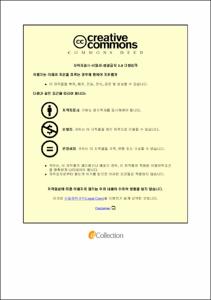직무특성과 근무환경 및 조직문화가 직무만족을 매개로 생활만족에 미치는 영향에 관한 연구
- Alternative Title
- A Study on the Effects of Job Characteristic, Work Environment and Organizational Culture on Life Satisfaction via Job Satisfaction
- Abstract
- In Korean society, the rapidly aging population and low birth rates are increasing the demand for women to participate in economic activities. Thus, it is necessary to pay attention to efficient policies for the utilization of woman resources and to continue related research.
In particular, women workers in Korea have a great deal of mental and physical burden because they are expected to play a role in the workplace and play a role in household work and child rearing at home.
This study recognizes the limitation of previous literature regarding job characteristic, work environment, organizational culture, job satisfaction, life satisfaction and develops the research model and hypothetical relationships focusing on woman office workers.
The purpose of this study is to examine structural relationship among job characteristic, work environment, organizational culture, job satisfaction and life satisfaction. Also, it is examine to the moderating effect of employment type and marital status on the relationship between job characteristic, work environment, organizational culture and job satisfaction.
The suggested hypothetical relationships were tested with primary data from a sample 339 woman office workers. The data collection was from March 15 to March 29, 2019. The collected data were analyzed by using the SPSS 25.0 and AMOS 25.0 to test hypotheses.
The major findings of the empirical research are as follows;
First, autonomy, a component of the job characteristic, has positive influence job satisfaction.
Second, human environment and compensation system, which are components of the work environment, have positive influence job satisfaction.
Third, consensus culture and rational culture which are components of the organizational culture have positive influence job satisfaction.
Fourth, job satisfaction have positive influence life satisfaction.
Fifth, functional diversity have differential influence on job satisfaction by employment type. When these results are combined, it is confirmed that woman office workers’ autonomy, human environment, compensation system, consensus culture, and rational culture factors influence life satisfaction via job satisfaction.
Sixth, functional diversity, autonomy, human environment and compensation system have differential influence on job satisfaction by marital status.
In conclusion, autonomy, human environment, compensation system, consensus culture, and rational culture is expected to improve job satisfaction for woman office workers.
The results of this study show that factors that satisfy woman office workers who are increasingly complex and demanding various abilities are also changing from the past. Therefore, the government and companies should be able to establish appropriate policies after checking what woman office workers expect to do for job satisfaction and life satisfaction.
- Issued Date
- 2020
- Awarded Date
- 2020. 2
- Type
- Dissertation
- Publisher
- 부경대학교
- Alternative Author(s)
- BAE EUN JIN
- Affiliation
- 부경대학교 대학원
- Department
- 대학원 경영컨설팅협동과정
- Advisor
- 김완민
- Table Of Contents
- Ⅰ. 서 론 1
1. 연구의 배경 1
2. 연구의 목적 5
3. 연구의 구성 6
Ⅱ. 이론적 배경 8
1. 직무특성에 대한 고찰 8
가. 직무특성의 개념 8
나. 직무특성의 구성요소 8
다. 직무특성의 선행연구 11
2. 근무환경에 대한 고찰 14
가. 근무환경의 개념 14
나. 근무환경의 구성요소 15
다. 근무환경의 선행연구 17
3. 조직문화에 대한 고찰 18
가. 조직문화의 개념 18
나. 조직문화의 구성요소 20
다. 조직문화의 선행연구 22
4. 직무만족에 대한 고찰 25
가. 직무만족의 개념 25
나. 직무만족의 구성요소 27
다. 직무만족의 선행연구 29
5. 생활만족에 대한 고찰 34
가. 생활만족의 개념 34
나. 생활만족의 구성요소 36
다. 생활만족의 선행연구 37
Ⅲ. 연구모형 및 가설 40
1. 연구모형 40
2. 가설의 설정 41
가. 직무특성과 직무만족 간의 관계 41
나. 근무환경과 직무만족 간의 관계 43
다. 조직문화와 직무만족 간의 관계 45
라. 직무만족과 생활만족 간의 관계 46
마. 고용유형과 혼인여부의 조절 효과 48
3. 변수의 조작적 정의 49
가. 직무특성 50
나. 근무환경 52
다. 조직문화 53
라. 직무만족 55
마. 생활만족 56
4. 자료수집 및 분석 방법 56
Ⅳ. 실증연구의 분석 및 가설 검증 58
1. 표본의 일반적 특성 58
2. 기술 통계 및 상관관계 60
가. 기술통계 60
나. 상관관계 61
3. 신뢰성 및 타당성 분석 62
가. 탐색적 요인분석 62
나. 확인적 요인분석 65
4. 가설검정 69
5. 고용유형과 혼인여부에 따른 비교분석 73
Ⅴ. 결 론 78
1. 연구결과 요약 78
2. 연구의 시사점 80
가. 이론적 시사점 81
나. 실무적 시사점 81
3. 연구의 한계점 및 향후 연구방향 82
참 고 문 헌 84
부 록 107
- Degree
- Doctor
- Files in This Item:
-
-
Download
 직무특성과 근무환경 및 조직문화가 직무만족을 매개로 생활만족에 미치는 영향에 관한 연구.pdf
기타 데이터 / 1.37 MB / Adobe PDF
직무특성과 근무환경 및 조직문화가 직무만족을 매개로 생활만족에 미치는 영향에 관한 연구.pdf
기타 데이터 / 1.37 MB / Adobe PDF
-
Items in Repository are protected by copyright, with all rights reserved, unless otherwise indicated.